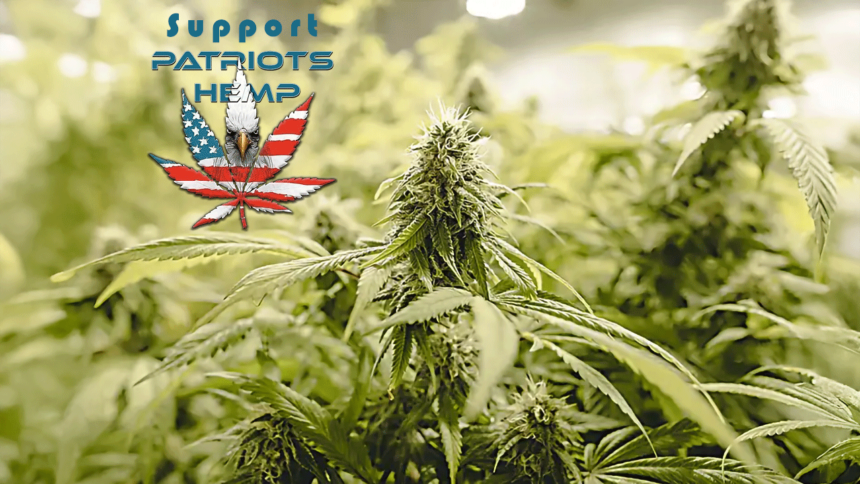Former President Donald Trump’s vice presidential running mate, Sen. JD Vance (R-OH), is claiming that “marijuana bags” are being laced with fentanyl, and he says the Biden administration’s border policies are making it so that youth, including his own kids, can’t experiment with cannabis or other drugs without risking fatal overdoses.
During a campaign event with the Milwaukee Police Association in Wisconsin on Friday, Vance said he spoke to a police officer who told him that “we’ve got fentanyl in our marijuana bags that our teenagers are using,” echoing a claim about laced cannabis that’s been routinely contested by advocates and certain state regulators.
“Look, I’m the parent of three young kids… A seven-year-old, a four-year-old and a two-year-old,” he said. “We don’t have to worry about this yet, but I’m certain—because kids are kids—that one day, one of my kids is going to take something or do something that I don’t want them to take. But I don’t want that mistake to ruin their life.”
“I want them to learn from it. I want their parents to be able to punish them. I don’t want our kids to make mistakes on American streets and have it take their lives away from them,” he said, suggesting that he recognizes when his children grow up they may experiment with certain substances such as marijuana, but he’s more concerned with potentially lethal contamination.
Advocates would argue that’s a key reason to enact a regulatory framework for marijuana or other drugs that includes testing requirements and other safeguards to mitigate the risk of dangerous contaminants, but the GOP candidate did not draw that connection and continues to maintain an opposition to cannabis legalization.
New York regulators have also worked to debunk what they say is the “false” narrative that cannabis is commonly contaminated with fentanyl—a “misconception” that remains “widespread” despite a lack of evidence, they said last October.
Meanwhile, Vance, who was elected to Congress in 2022, doesn’t have an extensive cannabis policy record, but his limited actions and comments on the issue indicate that he’s aligned with Trump on one key issue: He backs the rights of states to set their own marijuana laws. He’s also indicated that he’s against incarcerating people over low-level possession.
However, he voted against bipartisan banking legislation that passed in committee and has argued that states that have enacted legalization should increase enforcement activities, complained about the smell of cannabis multiple times and suggested that its use can lead to violence.
With respect to Vance’s new comments on fentanyl-laced marijuana, anecdotal claims about those concerns have commonly originated from law enforcement sources, with warnings then carried by media outlets. The resulting narrative has at times been adopted and echoed by lawmakers, including at the congressional level.
Last year, for example, Rep. Vern Buchanan (R-FL) proposed an amendment to a fentanyl-focused bill that would have required the Government Accountability Office (GAO) to carry out a study into cannabis tainted with fentanyl. It was not made in order for floor consideration by the House Rules Committee, however.
Before dropping out of the run for the 2024 Republican presidential nomination, Vivek Ramaswamy also suggested at times that China is supplying Mexican drug cartels with ingredients to produce fentanyl-laced products, including “CBD gummies.”
Meanwhile, Trump said last week that he’s starting to “agree a lot more” that people should not be criminalized over marijuana given that it’s “being legalized all over the country.”
“As we legalize it throughout the country—whether that’s a good thing or a bad thing—it’s awfully hard to have people all over the jails that are in jail right now for something that’s legal,” Trump said. “So I think obviously there’s a lot of sentiment to doing that.”
While not an explicit endorsement of major marijuana reform, the statement represents another example of Trump departing from the harsh anti-drug rhetoric he’s been employing over this latest campaign, at least when it comes to marijuana. And while it’s unclear whether he will choose to back the Florida cannabis legalization measure that he will have the chance to vote on as a resident, he did not take the opportunity to denounce it, despite Florida Gov. Ron DeSantis’s (R) campaign against the reform measure.
Trump also recently went after Vice President Kamala Harris over her prosecutorial record on marijuana, claiming that she put “thousands and thousands of Black people in jail” for cannabis offenses—but the full record of her time in office is more nuanced.
Trump’s line of attack, while misleading, was nonetheless notable in the sense that the GOP presidential nominee implied that he disagrees with criminalizing people over marijuana and is moving to leverage the idea that Harris, the 2024 Democratic nominee, played a role in racially disproportionate mass incarceration.
As president, Trump largely stayed true to his position that marijuana laws should be handled at the state-level, with no major crackdown on cannabis programs as some feared after then-Attorney General Jeff Sessions rescinded the Obama era federal enforcement guidance. In fact, Trump criticized the top DOJ official and suggested the move should be reversed.
While he was largely silent on the issue of legalization, he did tentatively endorse a bipartisan bill to codify federal policy respecting states’ rights to legalize.
That said, on several occasions he released signing statements on spending legislation stipulating that he reserved the right to ignore a long-standing rider that prohibits the Justice Department from using its funds to interfere with state-legal medical marijuana programs.




















